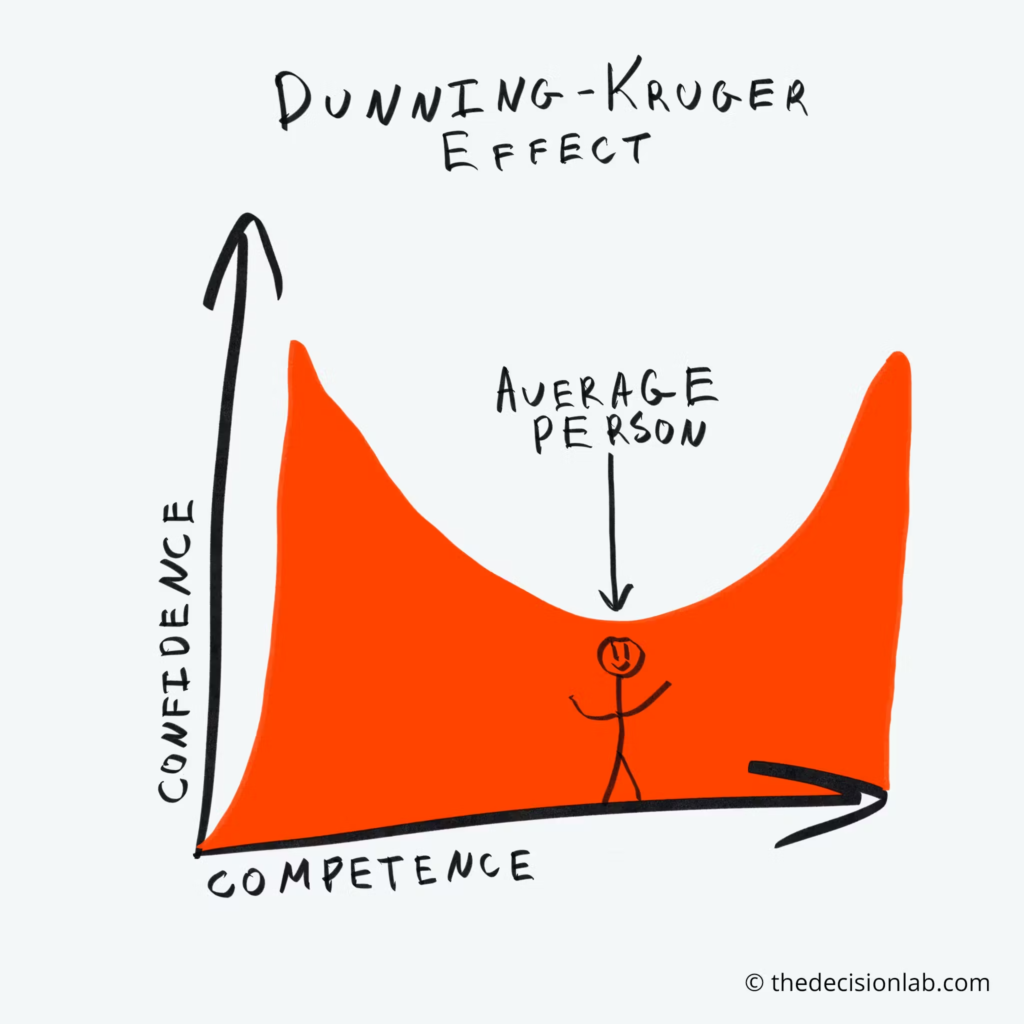Ever thought you were an expert at something only to realize later you had much more to learn? This is the Dunning-Kruger Effect in action.
The Dunning-Kruger Effect is a cognitive bias where people with low ability at a task overestimate their ability. In simple terms, it means people who know little about something often think they know a lot.
Impact of the Effect
— Overconfidence: People may take on tasks they are not qualified for, leading to mistakes.
— Lack of Growth: If you think you know everything, you stop learning and improving.
— Poor Team Dynamics: Overconfident individuals can disrupt teamwork and decision-making processes.
Example:
In a 1999 study by David Dunning and Justin Kruger, participants who scored lowest on tests of humour, grammar, and logic greatly overestimated their performance and ability.
3 Strategies to Overcome the Dunning-Kruger Effect
1. Seek Feedback Regularly: Ask for feedback from peers, mentors, and experts. Honest feedback helps you see your true strengths and weaknesses. It keeps you grounded and aware of areas needing improvement.
Example: A software developer regularly reviews code with peers to identify errors and improve coding practices.
2. Embrace Lifelong Learning: Adopt a growth mindset. Understand that learning never stops. Take courses, attend workshops, and read widely. This constant learning keeps you informed and skilled.
Data: According to the Talent Trends Report by PwC, 74% of CEOs are concerned about the availability of key skills, emphasizing the need for continuous learning.
3. Reflect on Your Skills: Regularly assess your skills and knowledge. Write down what you know and identify gaps. This reflection helps you stay humble and focused on continuous improvement.
Example: A project manager uses a skills matrix to track their competencies and plan development activities.
Have you experienced the Dunning-Kruger Effect? How do you ensure you are aware of it?
Image Source: thedecisionlab
#ContinuousLearning #DunningKrugerEffect #Leadership #SelfAwareness